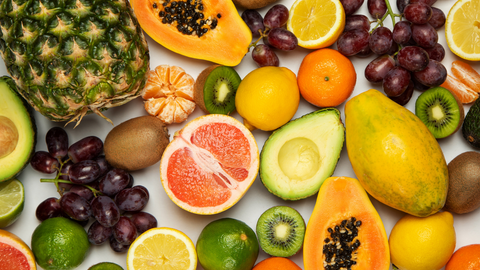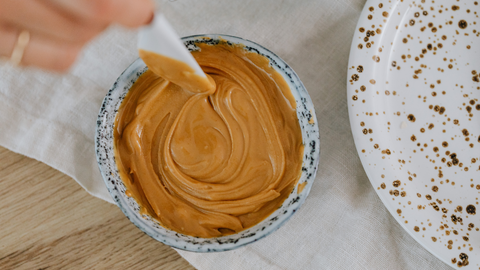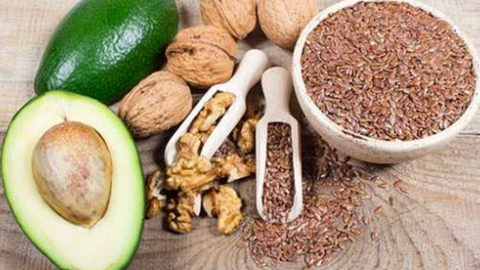Is a Plant-Based Diet Effective For Weight Loss?

Is a plant-based diet effective for weight loss?
The answer to this question is incredibly nuanced. My first response to this question will always be another question—is it better than what?
Is it better than eating low-fat dairy, skinless chicken, and fish? Well, if you are eating a lot of overly processed and calorie dense plant-based foods, then you may be better served to ditch the plant-based focus in favor of low-fat, lean animal products.
But research suggests that the healthiest and most sustainable way to lose weight is to eat a diet of almost exclusively WHOLE plant foods.
What Are Whole Plant Foods?

Whole plant foods are foods that are grown from the ground and eaten in their most natural form.
They include fruits, vegetables, whole grains, beans and legumes, nuts, and seeds. Generally, these foods can be eaten in abundance.
Minimally-processed foods such as tofu, tempeh, plant-based milks—and sweeteners such as maple syrup, date syrup, and molasses—are also considered whole plant foods and can be eaten in moderation.
Are All Whole Food Plants The Same?
As a general rule, if you are eating entirely whole plant foods, there is no need to count calories.
By their very nature, whole plant foods are calorie light and nutrient dense, with an abundance of fiber to keep you satiated for hours.
However, certain foods that fit in the whole-plant food culinary style should be minimized if you are trying to lose weight or reduce fat intake overall due to high cholesterol.
One Dietary Adjustment Reduced My Weight and LDL Cholesterol

My personal health practitioner is a Lifestyle Medicine Specialist.
As a whole-plant food eater, my weight and LDL cholesterol (bad cholesterol) were slightly elevated.
My practitioner suggested I eliminate my daily dollop of peanut butter from my morning oats.
That was a big ask. I have loved peanut butter since I was a young boy, but it seemed like such a simple adjustment.
At my 6 month check-up, I weighed in 12 pounds lighter and reduced two inches off my waist (both of these numbers are significant for a man who stands 5’4’) while reducing my LDL cholesterol to a healthy level.
Even though I was eating all natural peanut butter with no added salt, sugar, or oil, two tablespoons of peanut butter has close to 200 calories (10% of a standard 2,000 daily calorie diet) and about 16 grams of fat.
(And I was probably adding closer to four tablespoons to my morning oats!)
Of that fat, about 3.5 grams are the unhealthy saturated fat, found in abundance in animal products, but are usually more scarce in whole plant foods. Two tablespoons of peanut butter provide about 25% of the daily required intake of saturated fat. Excess saturated fat can drive up LDL cholesterol.
Additionally, if you are trying to lose weight, it may be more wise to expend those 200 calories on foods that provide more fiber, volume, and bulk.
For example, you could swap out those two tablespoons of peanut butter for ¾ cup of oats, just under one cup of black beans, just under two cups of sweet potatoes, 2½ cups of blueberries, three slices of whole wheat bread, four cups of carrots, or a whopping 6 cups of broccoli!
Where Does Exercise Come In?

I am a Lifestyle Medicine coach who teaches about six pillars of health including whole plant foods and daily exercise.
Both my personal and professional observations bring me to the conclusion that food choices are 80% of the weight-loss battle.
Quite simply, you cannot out run, out squat, and out lift bad food.
I worked some stringent labor jobs while still eating eggs, dairy, processed carbohydrates with added salt, sugar, and oil. My weight loss and cholesterol numbers hit a plateau. When I switched to whole plant foods and gave up my daily peanut butter feast, the remaining weight dropped easily.
I did not go on a “diet.” Rather, I adopted a lifestyle that made traditional dieting unnecessary and obsolete.
Do Men Have An Advantage Over Women When It Comes To Losing Weight?

Research indicates that weight loss is indeed easier for men. (Sorry, Ladies!)
This is primarily due to the higher testosterone levels in men naturally creating more muscle mass for us than for women. Even in a rested state, the body burns more calories to maintain a pound of muscle than a pound of fat.
We men do face challenges, however, as our testosterone levels drop as we get older.
Steady exercise, including even light weight training, can help keep our testosterone levels and our muscle mass high. Similarly for you ladies, weight training can add pounds of muscle to your bodies, which can result in increased rates of metabolism.
I still contend, however, that a steady exercise routine with a sloppy diet will cause you to spin your weight-loss wheels.
Eating For Maintenance Or Eating For Weight Loss

If you are looking to maintain your current weight and LDL cholesterol levels, eating whole plant foods and daily moderate exercise may be sufficient for you.
If you are looking to drop a few pounds and reduce your cholesterol, consider keeping the nuts and nut butters, avocados, and dried fruit to an absolute minimum.
Additionally, sparingly use dates, maple syrup, and agave nectar as sweeteners as opposed to processed sugar.
I would recommend avoiding packaged sweets with dates as the primary ingredient, such as Lara Bars and date rolls. Even though they are whole plant foods, dates are extremely calorie dense.
By contrast, bulk up on leafy and cruciferous greens such as arugula, bok choy, romaine, broccoli, spinach, kale, and cabbage.
Additionally, eating most fruits is the optimal way to satisfy your sweet tooth. Train your palate to embrace apples, berries, and citrus fruits. Consider adding these to morning oats, whole grain cereals, and even salads.
Our bodies are designed to crave the sweetness of fruits, which are full of fiber and antioxidants. Unfortunately, our palates have been hijacked by the processed food industry, with the overstimulation of added sugars in various forms.
Generally, it is not necessary to strictly monitor your food choices if you eat a variety of fruits, vegetables, whole grains, and legumes.
But if you need to lose weight and reduce LDL cholesterol, consider keeping whole plant foods that are calorie dense and have significant amounts of saturated fat to an absolute minimum.
